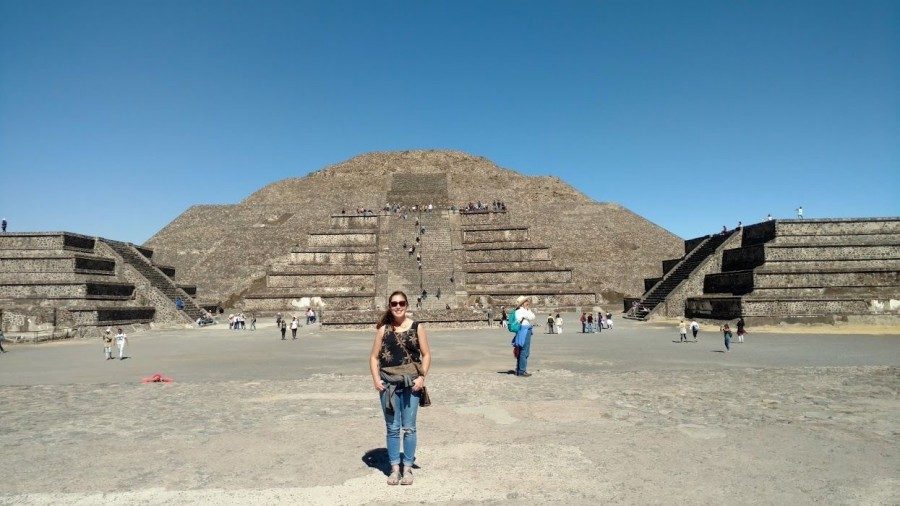Tulane Fulbright scholars share their experience from abroad
Courtesy of Sarah Haensly
Sarah Haensly is current interning full time in Mexico City and earning her masters degree.
From the ancient, sun-kissed coasts of Croatia to skyscrapers and streets of Singapore, students across the globe often feel drawn to become immersed in a foreign culture but lack the necessary resources to indulge their international curiosity.
The Fulbright U.S. Student Program aims to mitigate financial barriers for such students by awarding top scholars with the funds needed to study, research, work and live abroad. By living alongside people from the host country and sharing day-to-day experiences, Fulbright scholars aim to foster mutual exchange and understanding between host countries and the recent graduates they sponsor.
For the second year in a row, Tulane has been recognized as a top producer of Fulbright Scholars, ranking alongside institutions like Stanford, Columbia and NYU. According to Jennifer Beers, the coordinator for nationally competitive scholarships at Tulane, Tulane’s strength as a Fulbright-producing institution stems in part from the makeup of its student body.
Tulane is a top producer of Fulbright US Students https://t.co/BCMCvjftWi #Tulane #rollwave pic.twitter.com/0w2unFDBKq
— Tulane University (@Tulane) February 21, 2018
“Tulane students tend to be particularly well-suited for this award, given that it aims to foster cultural exchange and mutual understanding. And our students seem to have had those experiences, both academically and extracurricularly, that make them excellent cultural ambassadors for the United States,” Beers said.
Tulanians, however, are not alone when they apply for Fulbright scholarships. Each Tulane student who wants to be a Fulbright scholar must be endorsed by Tulane’s administration and undergo a month-long review process during which their applications are thoroughly critiqued.
“When you apply, you meet with a committee, and I thought that they were going to be judging us or deciding whether or not they would support us, sort of like a competition,” Gabriel Rodriguez, a Tulane alum and current Fulbright scholar, said. “They’re just here to help. You can talk to Dr. Beers, and she’ll be happy to help you with any questions you have, and the committee is there to help too.”
Once they are abroad, Fulbrighters work full-time jobs alongside natives. Rodriguez works as an English teaching assistant at a small high school in southern Italy. In addition to enjoying his work as a teaching assistant, Rodriguez emphasized how enjoyable life abroad has been.

Gabriel Rodriguez works as an English teaching assistant at a small high school in southern Italy.
“We have a lot of freedom,” Rodriguez said. “Really the only thing they ask us to do is to get involved with the community, and everyone has a different way of doing that. For me personally, I ended up in a pretty small town in Italy … it’s very slow, and you’ll stop at your local bakery every day for like 30 minutes and just talk with people.”
On the other side of the planet, Tulane alum and Fulbright English teaching assistant Jessica Tran reported a similar appreciation for her time abroad in Vietnam and the perspective she’s gained from the local Vietnamese community.
“One of my favorite things to do is getting to know [my students] outside of class,” Tran said. “We’ll often go for milk tea or coffee, and it’s a lot of fun. In regards to being in Vietnam, the best part is being able to have a deeper connection with my family and learn more about my heritage.”
In addition to supporting English teaching assistants, Fulbright supports recent graduates entering a wide variety of fields. Sarah Haensly, a recipient of the binational business internship grant, is currently interning full time in Mexico City and earning her master’s degree.
Haensley’s experience with Fulbright has been so positive that she is planning to live permanently in Mexico City.
“I usually go and rock climb after work, or I meet up with friends and go salsa dancing, and on the weekends I explore the city,” Haensley said. “Mexico City is a really interesting city. It’s humongous, there’s a ton to see and a ton to do. It’s just fascinating to be living in a completely different culture where there’s so much exploring to do.”
Recently, President Trump’s Administration has recommended substantial financial cuts to the Board of Educational and Cultural Affairs, the administration which allocates funds to the Fulbright Program. For Fulbrighters like Haensley, this news has been a cause for concern.

Sarah Haensly is a recipient of the binational business internship grant.
“Fulbright is a really important program for fostering mutual exchange and understanding between countries. It’s an exchange of cultures and ideas and knowledge, so I think it’s really unfortunate that they are looking to cut funding to the grant.” Haensly said.
Students interested in learning more about Fulbright Scholarships should reach out to Jennifer Beers and can learn more at Fulbright’s website.
Your donation will support the student journalists of Tulane University. Your contribution will allow us to purchase equipment and cover our annual website hosting costs.




Leave a Comment